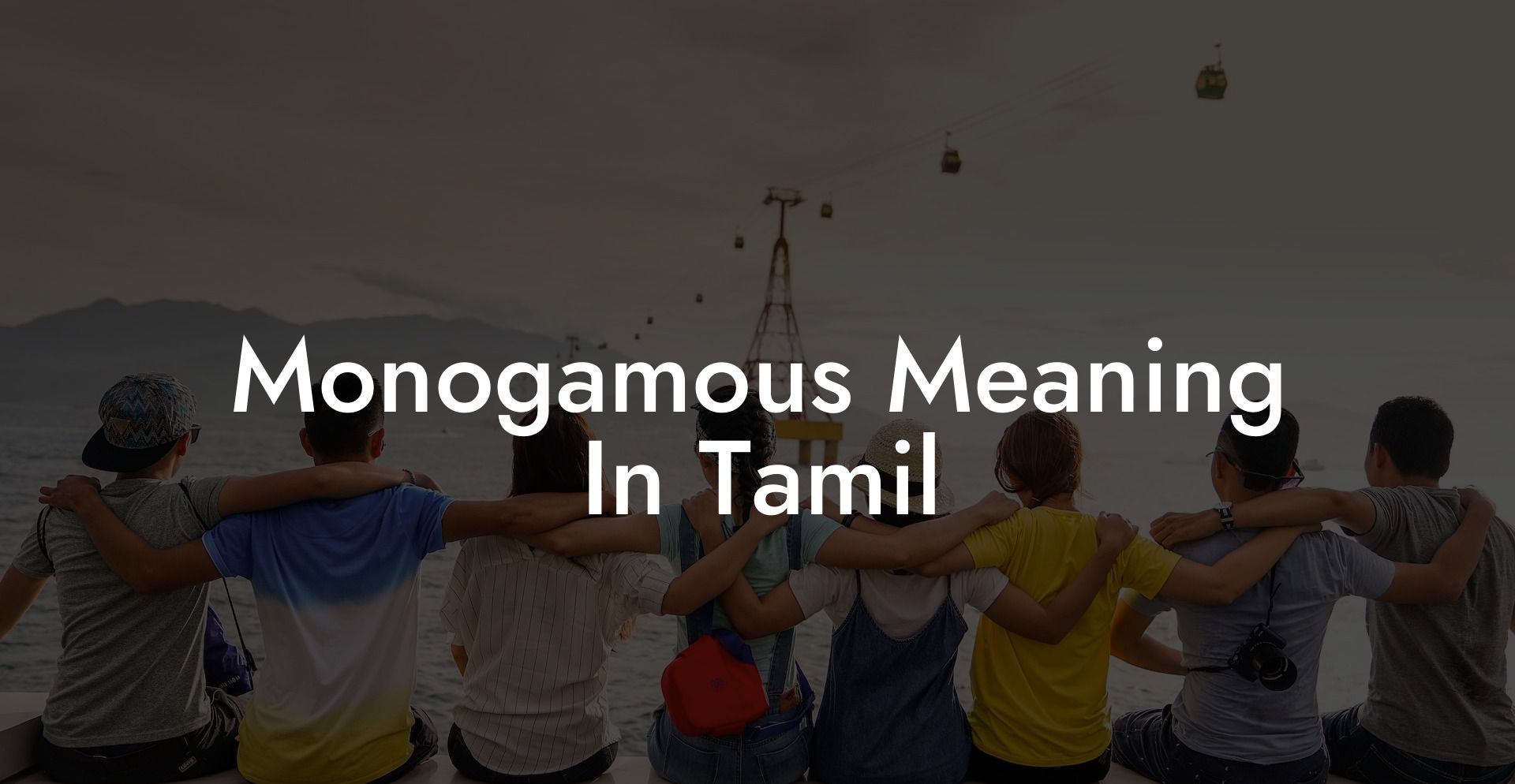When it comes to discussing relationships and types of romantic partnerships, language barriers can often lead to confusion. One such example is the word "monogamous" and its meaning in the Tamil language. In this blog post, we will take a deep dive into the concept of monogamy, its importance in various cultures, and how it is understood in the Tamil language. By understanding the monogamous meaning in Tamil, we can better appreciate the diverse perspectives on love, commitment, and relationships around the world.
Monogamous Meaning In Tamil Table of Contents
What is Monogamy?
Monogamy is a type of relationship where an individual has a single partner during their lifetime or at any one time (serial monogamy). This is the most common form of romantic partnership in many cultures, including western culture. Monogamous relationships are built on the foundation of exclusivity, loyalty, and trust between the partners. It is widely considered the traditional form of relationship, particularly for marriage.
Monogamous Meaning in Tamil
The Tamil language is one of the oldest and most widely spoken languages in India. It is mainly used in the Indian state of Tamil Nadu and the union territory of Puducherry. When translated, the Tamil word for "monogamous" is "ஒரே துணையுடன்" (Orē tuṇaiyuṭaṉ).
Monogamy in Indian Culture
India is home to various religions, cultures, and belief systems, which gives rise to diverse views on relationships, marriage, and monogamy. Though the concept of monogamy is prevalent in Indian culture, particularly in the context of Hinduism, there are examples of non-monogamous relationships in various mythological texts and regional traditions.
Historically, some Indian leaders practiced polygamy (having multiple spouses), but in modern times, it is generally reserved for specific religious and traditional situations. Monogamy, however, remains the norm for the majority of the Indian population.
Challenges and Benefits of Monogamy in Tamil Culture
- Challenges: Tamil culture, like any other, encompasses various factors that may challenge the maintenance of a monogamous relationship. These challenges can include financial stress, work-life balance, communication difficulties or socio-economic disparities, and cultural expectations surrounding marriage and family life. It is essential for Tamil couples to understand these challenges and work together to overcome them to maintain a strong monogamous bond.
- Benefits: A healthy and successful monogamous relationship brings numerous benefits to a couple in Tamil culture. Loyalty and trust fostered in monogamous partnerships lead to emotional stability and improved mental health. Having children and raising a family in a stable and loving environment is also highly valued in Tamil culture. Furthermore, monogamous relationships offer a strong sense of security, which can significantly contribute to the overall well-being and quality of life for those involved.
Monogamous Meaning In Tamil Example:
An example of the monogamous meaning in Tamil culture can be seen in the typical wedding ceremony. A traditional Tamil wedding involves a ritual called "Saptapadi," which means "seven steps." The bride and groom take seven steps together around a sacred fire, representing the unity and commitment they will have in their married life. This ritual symbolizes a monogamous relationship, with the couple's footsteps representing the journey they will take as one. This example reflects the importance of loyalty and commitment in a monogamous union in Tamil culture.
As we've seen, the monogamous meaning in Tamil culture embodies loyalty, commitment, and unity, much like in any other language or culture. Understanding how monogamy is interpreted in various languages like Tamil allows us to appreciate the intricacies of relationships worldwide and the universal human experiences that bind us together. We encourage you to share this article with friends and explore other topics on The Monogamy Experiment, where we delve deep into the diverse realm of love and relationships. Help promote better understanding of such concepts and contribute to our enriching global perspectives.













